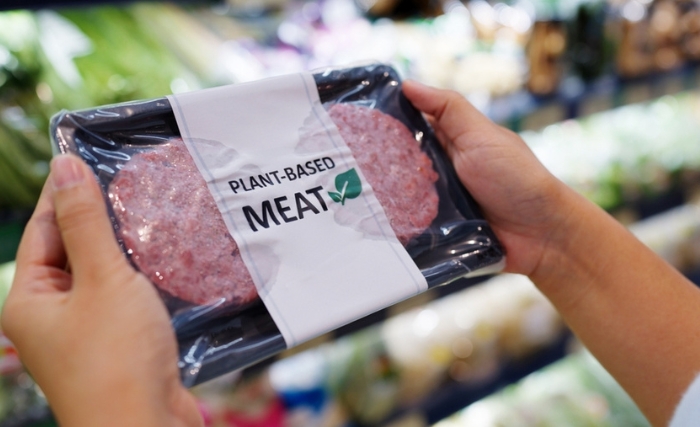
The rise of veganism is reshaping the landscape of food production in profound ways. This shift in dietary preferences, driven by ethical, environmental, and health concerns, is not just a fleeting trend but a significant consumer movement that’s altering how we produce and consume food.
In this article, I’ll explore how the growth in veganism impacts food production. I’ll delve into the ripple effects of this burgeoning lifestyle choice on various facets of food production. From increasing demands for transparency to driving sustainability and innovation, I’ll examine how the sway of veganism is prompting the food industry to re-evaluate its practices and adapt to evolving consumer expectations.
The Rise in Veganism
The recent surge in veganism is a phenomenon that those working in the food production sector can’t afford to overlook. In order to fully grasp the impact of veganism on food production, it’s essential to understand what it is that motivates people to make the change to a plant-based lifestyle. Seemingly, there are three key factors at play here.
Ethical Consideration
Ethical and moral considerations are first and foremost among peoples’ reasoning when it comes to shifting to a vegan diet. More individuals are making conscious decisions to abstain from animal products due to concerns about animal welfare and factory farming practices.
Environmental Views
Increased awareness surrounding sustainability has been a significant motivator for many vegans. The perceived detrimental impact of animal agriculture on the environment has motivated numerous people, particularly in younger, generally more environmentally-conscious generations, to seek out dietary choices that better align with their values.
Health Concerns
veganism. Those adopting a plant-based diet often cite lower risks of heart disease and obesity and improved gut health as key factors swaying them towards their chosen lifestyle. As health becomes a top priority for many consumers, the food industry must respond by offering a wider variety of nutritious, plant-based options.
What Does This Mean for the Industry?
When consumer behaviour shifts, the onus is on the industry to adapt to accommodate new demands. In this respect, the move towards plant-based diets is no different. In order to succeed, food production companies must consider their ethical, sustainable, and healthy plant-based options, mainly when catering to younger Millennial and ‘Gen Z’ audiences.
In fact, research shows that those businesses that embrace the impact of veganism on food production retain a higher chance of maintaining their brand value and flourishing.

Transparency in Food Production
While broader offerings might represent an excellent starting point, it’s clear that the ways in which veganism is impacting the food production industry go beyond simply offering a plant-based alternative.
As consumers embrace veganism, they’re not just looking for products that exclude animal-derived ingredients. They’re looking for assurance that their food choices align with their ethical and environmental values. This demand for transparency extends from the sourcing of raw materials to the processes used in manufacturing the final product.
Challenges and Opportunities
As with any rapid shift in customer behaviour, the surge of veganism does pose certain challenges for the food industry. However, where there are challenges, there are also opportunities for growth and innovation. So, how has veganism impacted affected the food industry in this regard?
Innovation
One of the main challenges is the need for extensive research and development to create plant-based alternatives that can match or even surpass their animal-based counterparts in terms of taste, texture, and nutritional value. This requires significant investment, both in terms of time and resources, which can be a daunting task.
Regulations
Another challenge is the stringent regulatory landscape. With the rise of veganism, there’s an increasing need for clear definitions and regulations around terms like ‘vegan,’ ‘plant-based’, and ‘cruelty-free.’ Navigating these regulations can be complex and costly.
A Burgeoning New Market
A positive way in which the growth of veganism is impacting the food industry is in the creation of a robust new market for plant-based products. Studies show that vegans tend to be brand-loyal in a way that other consumers aren’t, which could mean exciting opportunities for savvy food production companies.
A Positive Brand Image
The push for sustainability offers opportunities for businesses to improve their environmental footprint and enhance their brand image. Companies that adopt sustainable practices not only appeal to vegan consumers but also to a broader demographic concerned about climate change and environmental degradation.
Trust and Loyalty
The demand for transparency from vegan consumers provides an opportunity for companies to build trust and loyalty with their customers. By being open about their sourcing and production methods, they can differentiate themselves in a crowded market and foster long-term customer relationships.

Looking to Embrace the Opportunities of the Growth of Veganism?
The impact of veganism on the food industry is significant and far-reaching, creating both challenges and opportunities. Navigating this changing landscape requires insight, experience, and a forward-thinking approach. This is where I can support you.
With many years of experience in the food and beverage industry, I have a deep understanding of these changes and how to leverage them for business growth. My expertise can help guide you in developing sustainable, innovative, and customer-focused strategies.
For a more in-depth look at my expertise, visit my Food and Beverage page, or for a detailed conversation, please get in touch with me.

